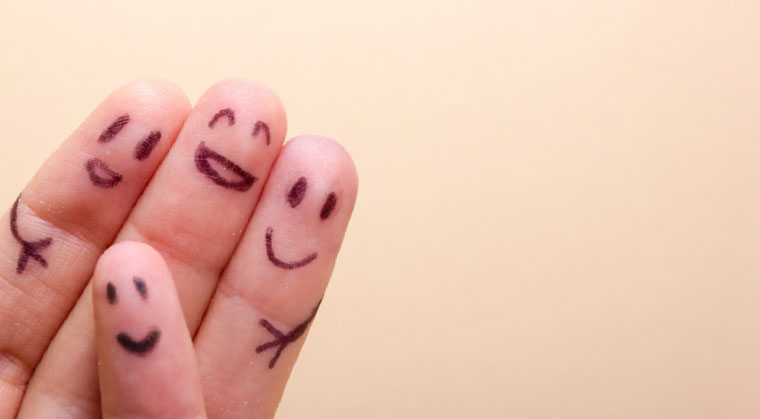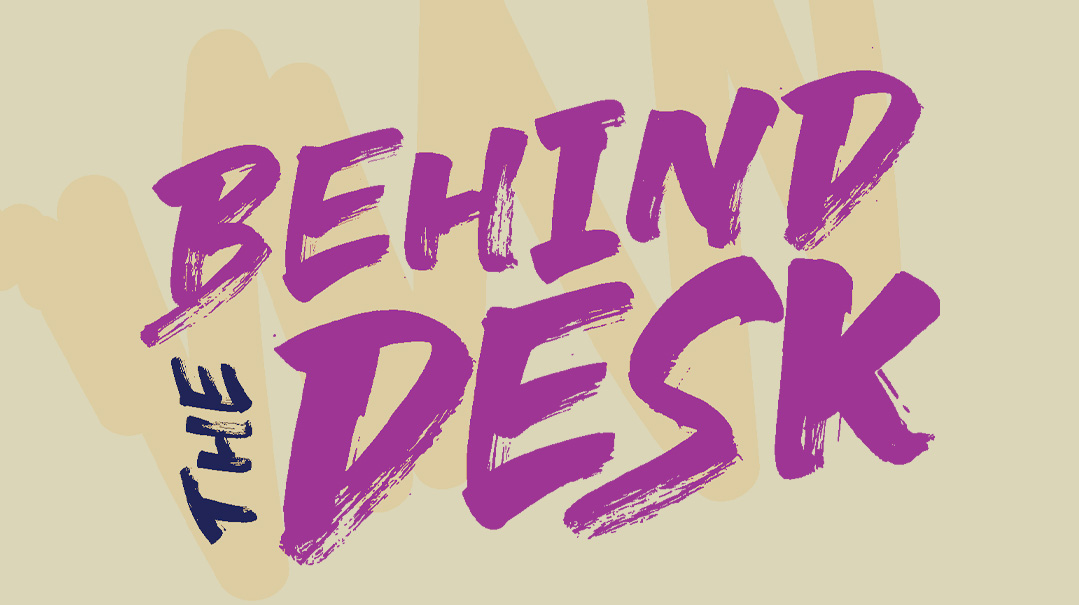All-Inclusive: How One School Raised the Bar

As a teacher, camp director, and now as a principal, Mrs. Weiner watched this cycle play out over and over — until she couldn’t stand it any longer. It was time to act

M
indy enters the lunchroom, eager to sit down and relax over her salad and iced coffee. It’s been a long morning, and there’s an afternoon ahead too. She heads for a table where many of her classmates are sitting and is about to take a seat at the only empty spot when Esti says, “Oh, sorry, Mindy — I’m saving that seat for Perel.”
Mindy flushes with embarrassment. She mumbles something and looks around for another seat, but no one seems to notice. She finally sits down at an empty table, hoping someone will join her soon, and pulls out her salad. But she’s lost her appetite.
Social exclusion is all too common in schools, camps, and any other social setting. And it’s so often inadvertent! Surely Esti didn’t mean badly — she was just saving a seat for her friend Perel. But Mindy is left feeling alone, rejected, and shamed — something Esti and her other classmates had never intended.
“When it comes to this kind of subtle exclusion, when we see girls in our schools struggling socially, we often miss the point,” says Mrs. Dassi Weiner, a principal at Yeshivas Toras Emes Academy in Los Angeles. She’s noticed a lot of attention given to cases of bullying or to teaching social skills to struggling students. But sometimes there’s a different problem. “So many girls are not actually bullies but just never include someone else into their group,” Mrs. Weiner explains. “And most of the girls who end up on the sidelines have no problem with social skills — 80% or 90% are simply just suffering because of the ‘clique mentality’ of their classmates.”
It’s so common, most girls wouldn’t even think twice about the problem with the above scenario. But simply having a culture of “chevrehs,” where some belong and others don’t, leaves the outsiders feeling unwanted and unworthy.
Mrs. Weiner introduces the topic with an idea found in Rashi. “All non-kosher animals have certain middos that characterize them, which is why we’re forbidden to eat them,” she explains. “But then there’s the chasidah — a bird named for chesed. Shouldn’t that be kosher?”
But no: Rashi explains that the chasidah does chesed only for her “friends,” her species, her “type.”
“To do chesed only to friends is not chesed — it’s cruelty!” emphasizes Mrs. Weiner. “It’s so much more hurtful to be left out by a girl who is kind and friendly within her circle of friends.”
It’s a powerful thought and a jarring one. And up until recently, the methods used to tackle it have remained ineffective.
“When teachers try to manipulate the social scene by asking girls to befriend the ‘less popular’ classmates, it sends the wrong message. The socially savvy, ‘popular’ girls hear that ‘So-and-so needs help’ and then reach out to her as a chesed — and that just reinforces the message that some girls are worth more than others.”
As a teacher, camp director, and now as a principal, Mrs. Weiner watched this cycle play out over and over — until she couldn’t stand it any longer. It was time to act.
The only way forward, Mrs. Weiner insists, is by raising everyone up — by working on including everyone, because every girl is worthwhile, and every girl counts.
“And it’s true,” she says passionately. “Do you know what every Jew is worth? We’re told that every single person is considered like Eliyahu Hanavi on Har HaCarmel (midrash Yalkut Shimoni). At that moment, the future of the entire nation hinged on Eliyahu! He was the only person calling out in the Name of Hashem against idol worship. And every single one of us is considered that important — as if the entire future of Klal Yisrael and the world is leaning on each one of us.”
This is the cornerstone of Mrs. Weiner’s vision.
START UP
One morning, the students at Toras Emes arrived in school to find a mysterious notice on the wall: RAISE THE BAR. What does RAISE stand for? Put the answers in Mrs. Weiner’s box.
Raise the Bar? R.A.I.S.E.? Speculation filled the school. Mrs. Weiner received hundreds of submissions, most of them correctly guessing either the word “respect” or “include.”
Finally, the answer was unveiled: Respect Adults, Include Students, Everywhere — and followed up with a new challenge. Every class would work with the teacher to write a mission statement for the program. To begin, every girl wrote which behaviors she felt were considered “respect,” and after a class discussion, each class submitted six ideas.
Next came a discussion regarding who falls into the category of “adults.” “Yes,” said Mrs. Weiner, “your substitute teacher is counted!”
But it was at the word “include” that the revolution really began to take hold.
“There was a woman going to a bar mitzvah,” relates Mrs. Weiner, in a dramatic tone that rivets listeners. “She called a babysitter, chose an outfit, got ready, and left the house. When she arrived at the hall, she was excited to see tables filled with her friends and acquaintances. What a nice event this would be! She approached one table, but there were no seats available. She tried another, then another. But at each table, the women apologized and explained that they were ‘saving’ seats for other women. In the end, the woman felt so ashamed and lonely, that she left the hall and went home.”
The girls were struck by the story, and Mrs. Weiner moved on to discuss common schoolyard exclusion.
“It’s time for you girls to pay attention to what you are doing. ‘Am I sitting with the same five girls every day?’ You need to think, ‘Can I widen my social circle a little bit? Can I notice and include a couple of other girls around me?’”
Mrs. Weiner asked the girls to imagine themselves switching schools and seeing the same three or four girls always sitting together. “Would you approach them?” she asked, highlighting the message that “cliquing” invariably causes exclusion.
She also stresses a common misconception — that idea of “doing it as a chesed.” According to the energetic menaheles, that isn’t good enough.
“When you go over to the girl in the corner and tell her to come and play, are you thinking ‘I’m with my friends but I feel bad for her’ — or, ‘I really want her to join?’” she asks pointedly. “Because our goal is not to ‘be nice.’ It’s to really, truly, understand the value of each person, so that she should feel it — and that’s why you’re being inclusive.”
With the word “students,” it was time to get real. “Every girl. Every type,” the principal reminded them. No longer did she want to see three girls walking, two together and one apart. Every one of us has a tzelem Elokim, and that’s all that matters.
The word “everywhere” opened the idea of contexts. “This isn’t just for school,” says Mrs. Weiner. “I’m talking about camp, shul, on the bus, your birthday party, anytime, anyplace. There shouldn’t be a defined, exclusive chevreh.
With inclusion as the byword and respect for every single person as the goal, the students created a mission statement defining their responsibilities: “I include,” “I invite,” “I open circles,” and the super-powerful, “I try. I forgive myself and others, and I try again” — reminding students that even if they fall, they can pick themselves up and “Raise the Bar” once more.
Every girl then received her Raise the Bar mission statement printed as a contract. She signed, a parent signed, and the principal signed.
The program had begun.
THE CIRCLE OPENS
The most dramatic change took place almost instantly. The girls of Toras Emes began to look around. To really look. And then they began to notice the girl on the sidelines, the classmate sitting alone, the student who never had a chance to play in the game.
“In our school, it’s become ‘socially off’ to say that someone can’t join,” a teacher emphasizes. “Inclusion has become natural. Everyone’s allowed to join. It’s ‘Raise the Bar.’ It’s not a chesed — it’s because everyone is a tzelem Elokim and we value her!”
Saving seats became another no-no. “Baruch Hashem, the culture has truly shifted. There is no concept of saving seats, not in the lunchroom, in the art room, on the bus, or anywhere. The Raise the Bar lingo has become second nature for the girls.”
Prior to Raise the Bar, girls often sat in tight, exclusive circles. Mrs. Weiner would talk to them about opening the circle, just a little — leaving space for someone to join. Now, it’s become ‘awkward’ to sit in a tight huddle. The girls have internalized the message that passive exclusion causes pain to others and have willingly “raised the bar” to change this.
“The atmosphere in school is much safer now,” a teacher shares. “We used to have girls coming to the office all the time to help them sort out fights… It rarely happens now. Raise the Bar has changed the school.”
Adar brings its own series of challenges. Who to give mishloach manos to — just to my own group, or can I “raise the bar” to include someone else? And at Toras Emes, costume day had become a pressure too — many girls dressed up in pairs, leaving those without a partner embarrassed. Mrs. Weiner was intimately familiar with this frustration, both as a mother and as a principal. So, with Raise the Bar, the rules changed.
“Today is one of the happiest days of my life,” she told the girls, a month and a half before Purim. “Until now, costume day made some girls feel bad. But no longer. From now on, each class has a theme, and the whole class is included.”
In her department, where Raise the Bar had been internalized, there wasn’t a single complaint.
RIPPLES SPREAD
“Raise the Bar” is now a byword in Toras Emes.
“Come on, raise the bar!” a younger student called to a class that seemed to be excluding a classmate from the ballgame.
“Hey, raise the bar,” girls remind each other when they rush to grab seats at an event.
It’s even become a verb. “Is it ‘raise the bar’ to have a choir with only a few girls?” a student asked the secretary.
“The girls realize that Raise the Bar represents the Torah’s approach to self-worth and how to treat others,” a teacher explains. “Unfortunately, it has happened that someone suffered so much socially that she eventually left Yiddishkeit. But here, the girls realize that the school believes they’re each special, and that the Torah gives them value.”
The message has had an incredible impact. “A student was upset with a more ‘popular’ girl in the grade. She told her, ‘I know you’re popular, but I’m a person too, I’m a tzelem Elokim!’” Although she felt hurt by the other girl, she knew her inner value.
“We’re only really, truly happy when we connect to Hashem,” Mrs. Weiner says. “And we connect by emulating Him. By recognizing everyone’s tzelem Elokim and connecting to it by giving, we feel so good.”
Mrs. Weiner asked her students to illustrate their contracts. Some pictures were very telling: In a cartoon showing a before and after scenario, the girl refusing to give a seat to her classmate was looking down and had a sad face. In the contrasting picture, when she allowed the other girl to sit down, she is looking straight at the girl, her own face sporting a beaming smile.
“Excluding others makes us unhappy, because it just doesn’t feel right,” Mrs. Weiner explains.
Exclusion doesn’t end when you leave school. A mother told Mrs. Weiner about a community event she’d been to, where women in their 40s and 50s weren’t sitting down at tables with available seats and instead were milling around the full ones where the “popular” women were sitting.
“This is not the way we want our children to grow up, continuing this poisonous tradition where people feel put down, left out, and insecure about their own worth,” says Mrs. Weiner. “We need to change it at the start.”
We also need to be careful about how we recognize our self-worth. “Parents need to be careful not to put down their children’s classmates by implying that their child is ‘better.’ There are ways of saying things that don’t put down the worth of another human being.”
Mrs. Weiner closes with a mashal.
“Imagine two princes — the most important boys in the kingdom. They have everything — money, talent, royalty. One day, they’re on their own, and one prince has $10 with him. The other only has $8. So the richer prince says, ‘Look! I’m worth more than you!’”
What has the prince done? He hasn’t just lowered the worth of his brother — but he’s actually lowered his own worth to just $10. He’s forgotten that he is a prince!
“By judging our classmates based on their families, financial situation, or talents, we’re lowering ourselves. We’re giving ourselves a superficial worth, when our true value is something internal and untouchable.”
A mother shared a touching incident: She was in shul on Rosh Hashanah with her two young daughters. There was a new girl in shul that her younger daughter didn’t feel comfortable playing with. The mother watched as her older, eight-year-old daughter, took her sister by the hand and approached the new girl. As they walked toward the girl, the mother overheard the older sister say to the younger sister, “Remember, we learned that every Jew is special.”
And that has been the principal’s aim all along. That every girl should understand her worth as a tzelem Elokim and then treat everyone else as such, too. Not as a chesed project, not because “it’s not nice to exclude,” but simply, and truthfully, because every Jew is special.
“And that is what makes the program so unique,” says Rav Yakov Krause, menahel of Yeshiva Rav Isacsohn, Toras Emes Academy. “‘Raise the Bar’ is about getting to the core of the issue and bringing out the tremendous greatness that lies in every tzelem Elokim.”
Can YOU Raise the Bar?
DO:
- Open circles when you’re sitting in a group
- Approach others because you really want them to join
- Vary your social scene by including other girls
DON’T:
- Save seats
- Form cliques
- Act nice out of pity or as a chesed project
There’s a special message in Raise the Bar’s logo too! If one girl raises the bar alone, it’s very heavy; it’s difficult to be inclusive when everyone else is cliquing. But if everyone raises the bar together, it’s light and easy — and everyone is happy!
You too can “Raise the Bar” by starting a similar program in your own school, class, or camp! Mrs. Dassi Weiner can be contacted through Teen Pages.
L’ilui nishmas Rebbetzin Gita Cohen — גיטל בת הרב אליעזר מנוח ע”ה
Rebbetzin Gita Cohen truly felt the pain of another and was the inspiration behind this program.
(Originally featured in Teen Pages, Issue 757)
Oops! We could not locate your form.






